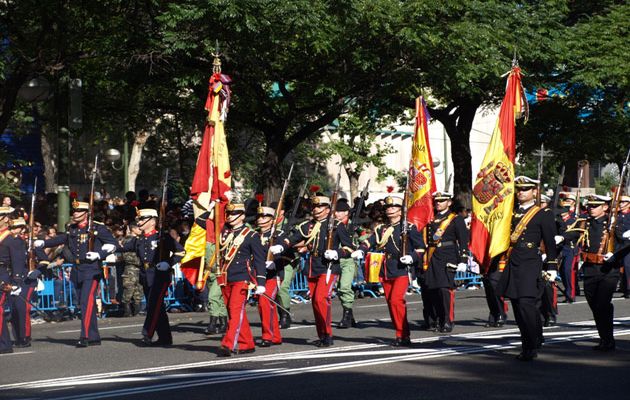Should religious minority soldiers be allowed to object to religious ceremonies?
A guide about religion in the Spanish armed forces warns about the privilege of the Roman Catholic Church over other confessions, especially in religious assistance.
Protestante Digital · MADRID · 02 SEPTEMBER 2015 · 11:20 CET

The Spanish Observatory for Religious Pluralism (which is part of the Ministry of Justice) has published a guide entitled “The exercise of religious freedom in the Spanish armed forces”, which reviews the legal and practical framework of religious freedom within the army, and gives recommendations for correct application of that freedom.
The guide was written by a university professor, with the assistance of the defence minister, the commission of the Spanish Observatory for Religious Pluralism, and several federations from different religious backgrounds.
The publication aims to “tackle all practical issues related to the exercise of this freedom inside military centres and units, included everything related to religious assistance”, as the guide’s introduction explains.
Despite the changes that have occurred in Spanish society in recent decades, the guide points out that the Spanish armed forces have hardly any information about religious pluralism among their members.
As a result, the Spanish military has not adopted many measures or adapted its structures to this new reality.
RELIGIOUS FREEDOM, GUARANTEED
The armed forces legal system has recognised religious freedom, which protects the right of every soldier to maintain and make public their beliefs, which must be respected and taken into consideration.
According to the guide, religious assistance is “a right to satisfy the religious needs of all members of the military, so the State must recognise, guarantee, and promote it.”
Religious assistance guarantees the military the right to worship, receive religious training, be buried according to their beliefs, and to have a diet which respects their religious convictions.
At the same time, it gives them the right not to declare their faith, not to receive religious assistance that is contrary to their beliefs, and not to participate in religious activities against their will.
“MANDATORY” RELIGIOUS ACTIVITIES
The Guide warns about the conflicts that may arise between discipline and religious freedom: “any action from the authorities which forces members to participate in religious acts will be considered a violation not only of religious freedom, but also of the neutrality that every public authority must have.”
Such conflicts include when, “as a part of a military function, it is necessary to worship an image of a Catholic saint or virgin”, because the armed forces regulations (article 21) say that soldiers must follow the orders of their superiors.
According to the guide, the best solution would be that the authorities “exempt non-Catholic members of the military from these activities, which must be strictly voluntary.”
RECOMMENDATIONS
The guide concludes by giving some recommendations for better implementation of religious assistance within the Spanish armed forces.
First of all, it recommends including non-Catholic personnel in the Religious Assistance Service, especially “people from religious confessions that have agreements with the State, like Evangelicals, Muslims and Jews.”
The experts believe that personnel “must have the same rights and obligations as the rest. The staff would be appointed by each religious confession, and the armed forces will confirm their designation.”
Secondly, the guide asks the armed forces “to set out the conditions for religious assistance so that religious personnel would be able to do their job; all the costs generated by this assistance will be paid by each religious confession.”
In order to carry this out, the armed forces would need to “establish an identification system for the religious personnel in charge of the religious assistance for the military who are members of their confession”, the guide concludes.
For more information, you can dowload the guide (in Spanish) here.
Published in: Evangelical Focus - europe - Should religious minority soldiers be allowed to object to religious ceremonies?
